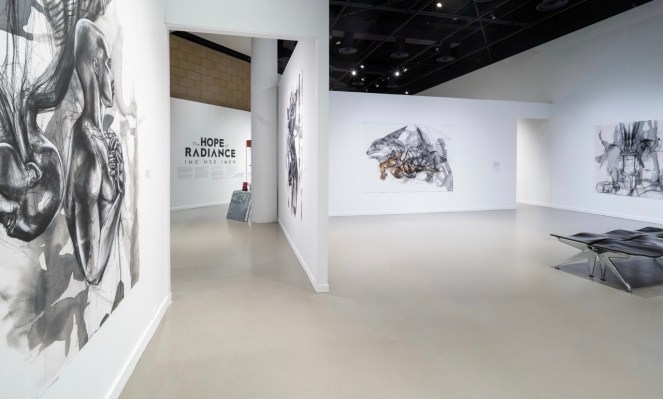[ad_1]

For many startups, getting a spot in an accelerator program like Y Combinator or TechStars is like winning the golden ticket to Willy Wonka’s chocolate factory. Accelerators offer a wealth of opportunities that can make the difference between a great idea that doesn’t achieve its potential and one that leads to an IPO.
We’re accustomed to seeing accelerators work for companies disrupting travel, payment processing or cloud storage, but what if that model could work outside the ambit of the VC mill? What if a little bit of investment, a splash of mentoring and practical support, a slew of introductions, and a whole lot of belief could be used to help artists with their careers?
That’s exactly what Inversion Art is trying to do.
“Y Combinator changed my life,” Joey Flores, co-founder of Inversion Art, told TechCrunch. “I feel so much gratitude for the program, and I thought that if I could do something like that for artists, it would be amazing.”
Flores is a Y Combinator alumnus whose music-marketing platform EarBits graduated from the program in 2010 and was sold in 2015. While Flores isn’t a professional artist, art is a deeply important part of his life, and a chance comment by a VC in a 2020 conversation set him on the path to find a way to support artists who have the drive and passion to make art their lifelong careers but need help to achieve it. As part of his research, he connected with his co-founder Jonathan Neil, and together they are looking to change the way that artists find success and recognition.
“The artist has always relied on other parties such as collectors, museums and galleries to develop their careers and define success for them,” said Neil. “We are, in our opinion, the first organization that is really sitting on the same side of the table as the artist in all of their negotiations and activities and really helping them to define success for themselves.”
[ad_2]
techcrunch.com




